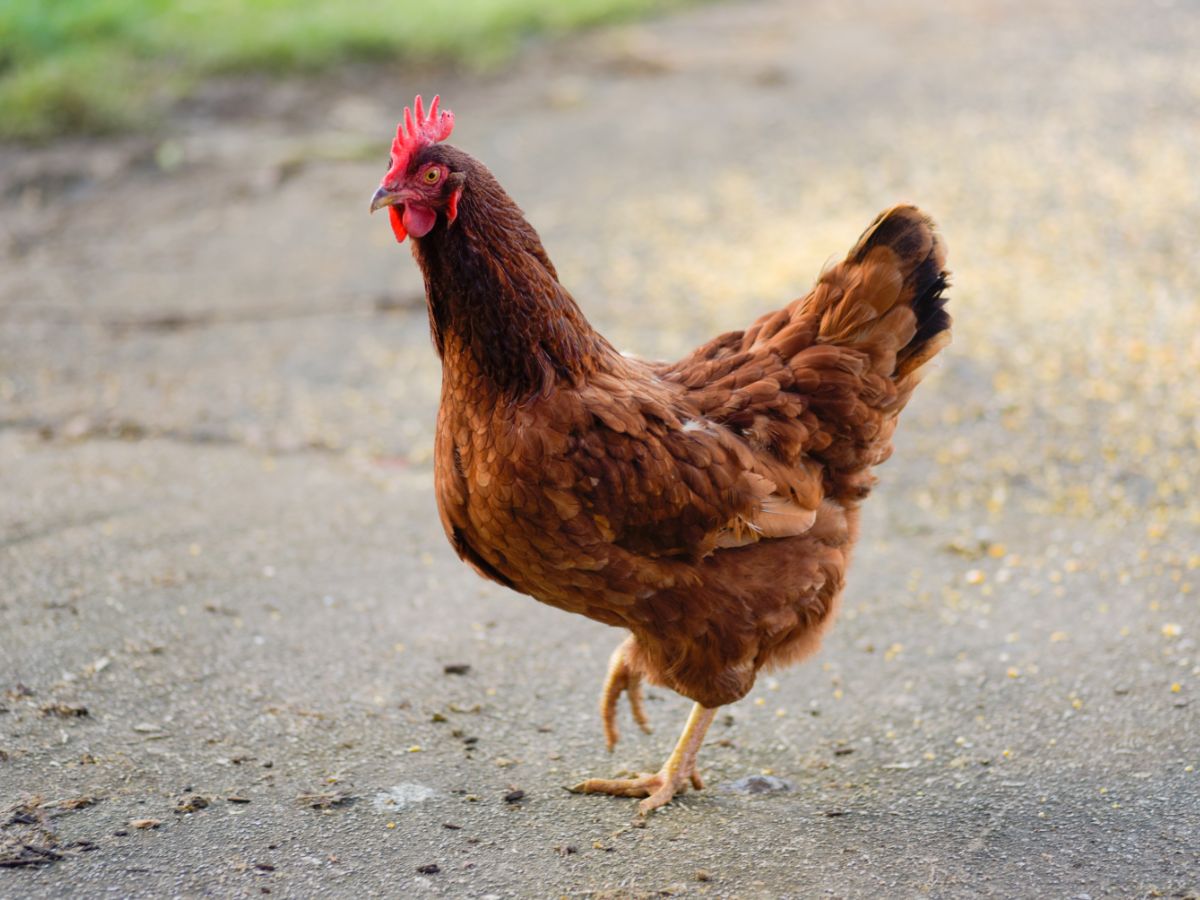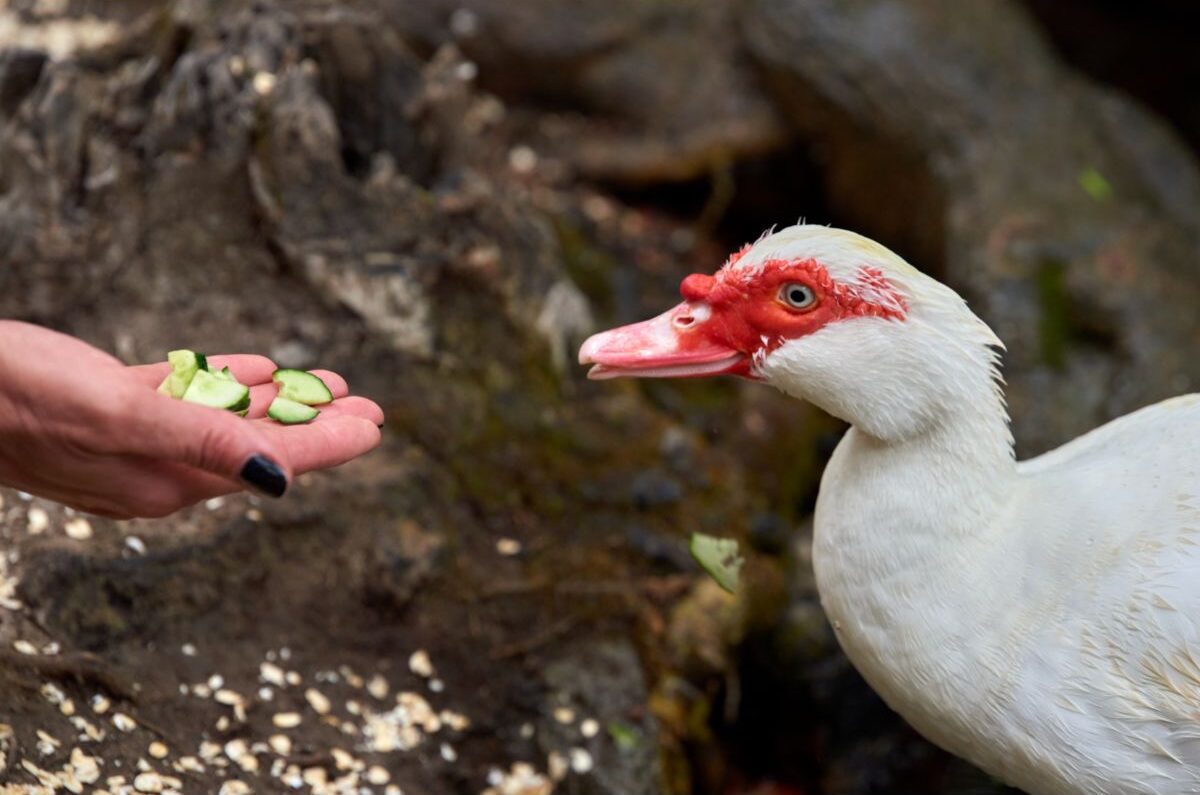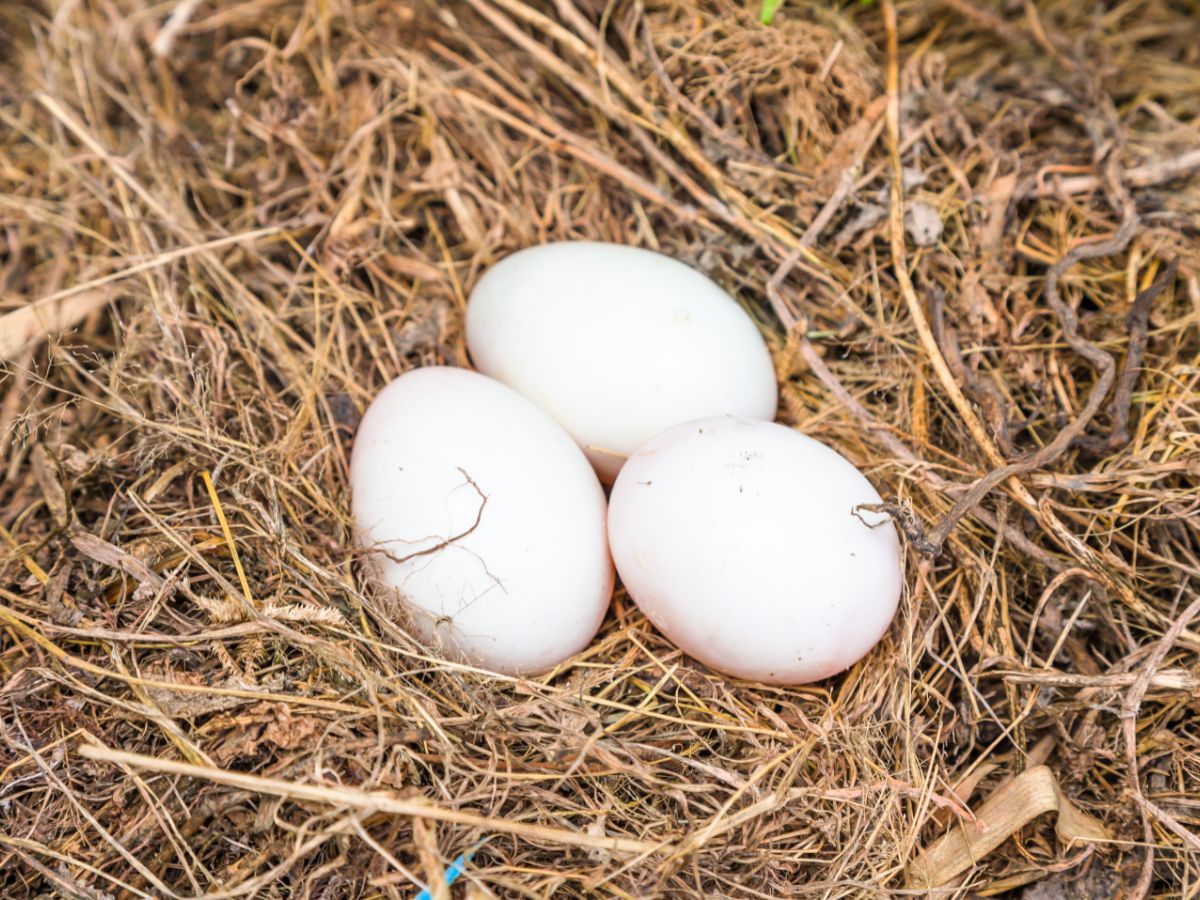If you’re new to keeping chickens, their feather loss can be frustrating. You may already know about chicken’s annual molt, but what else might be causing them to lose feathers?
Chickens lose feathers during their yearly molt, stress due to overcrowding, illness, bullying, loud noise, excessive heat, lack of food and water, or excessive handling by humans. Feather loss can be remedied by changing the immediate environment of the chicken or eliminating the cause.
By eliminating all possible reasons, it should be easy to recognize the incident or cause of your chicken’s feather loss. If you have fulfilled all the basic needs of your chickens and they still lose feathers, it could be nature doing her thing. Let’s look further at causes and how to fix feather loss.
Contents
Why Do Chickens Lose Feathers?
There are a few reasons that your chickens may be losing feathers. There are natural causes as to why they are losing feathers that cannot be altered, but also some health issues that may cause it.
By paying close attention to the flock’s behavior and health, you will be able to determine the cause of their feather loss. Here are a few reasons why they might be losing feathers:
Stress (mini molts): Sometimes, it can just be one thing bothering them. It can be a combination of a few things bothering them. Some of the biggest things causing them stress are:
- Lack of water or food
- Bright lights
- The temperature is too low or high
- Excessive handling
- Infestations
- Loud noises
They will be happier if they have a consistent routine. When routines are changed even a little bit, it puts a certain amount of stress on them. Adding new birds to the flock can also cause some chickens to become stressed since new chickens mean a change in the pecking order for everyone. Moving your hens to a new coop can also make them stressed since it’s a new environment.
Predator attacks: A predator attack is super stressful for the whole flock, not just the bird attacked. This stress may cause them to lose their feathers and take a few weeks to grow back. If your hen survives a predator attack, immediately check for wounds, and if your chicken has wounds, take them to the vet. It can likely take several weeks for your chickens to get their feathers back.
Poor nutrition and disease: Most diseases in chickens don’t cause feather loss; however, feather loss is because the chicken has poor nutrition or is ill. You’ll see feather loss in diseases like gangrenous dermatitis, fowl pox, polyomavirus, malnutrition, and polyomavirus. The good thing is that several of these diseases are uncommon.
If you suspect your chickens have any of these common diseases (Fowlpox and polyomavirus), Make sure to get them diagnosed and treated. If you suspect malnutrition, there could be some reasons for this.
- Not getting enough nutrition from their feed. Switch the feed brand and ensure they get enough nutrition from their feed.
- Chickens need a balanced portion of vitamins, fats, carbohydrates, minerals, energy, proteins, and water. Feeding the wrong portion to your chickens is usually the cause of malnutrition.
If your chicken has been malnourished for a bit, it can grow all its feathers within a few weeks as long as you provide the feed they need.
How To Treat Feather Loss In Chickens
The most obvious reason why chickens lose feathers is due to molting. Molting happens once a year with birds 16 months or older. Chickens molt yearly, usually in the fall. Losing feathers from their head to their toes because regrowing feathers places high demands on a chicken. When a chicken is molting, egg production slows down or stops entirely.
Molting can be anywhere between 4 to 12 weeks or more. Feather loss can be anywhere on a chicken. Paying attention to where your chicken is losing feathers can help indicate what’s wrong. Feather loss on your chicken’s head can mean lice, molting, or other chickens being aggressive towards each other.
Random bald spots on a chicken’s chest can be from bullies within the flock, parasites, or chickens picking at their feathers. Broody hens will usually peck at their chest feathers. If you notice that the vent area of your chicken is missing feathers, it can be from numerous reasons like lice, worms, mites, self-pecking, being bullied, or being egg bound.
Growing your chicken’s feathers back: Although you can’t speed up the natural process of your chicken’s feathers growing back, you can help create a safe and healthy environment for the flock.
- Maintain your chicken’s living area: Clean your chicken’s coop, nesting box, and roost regularly.
- Avoid boredom: Keep your chickens busy and happy so they don’t start peaking at each other when they get bored. Supervised free roaming and giving them a cabbage to peck at can keep them busy.
- Offer dietary protein: Make sure your chicken’s diet is rich in protein. Offer your chickens rich protein snacks such as sunflower seeds and worms.
- Provide your chickens with a dust bath: Give them access to a dust bath in their run area. They use dust baths to clean their feathers and get rid of parasites.
- Remove a chicken being pecked: If you notice a chicken is missing feathers from being pecked by others, remove them and place them in another living area until their feathers grow back.
What Diseases Cause Chickens To Lose Feathers?
Most diseases don’t necessarily cause feather loss. But some can cause feather loss and will need medical attention for your chicken. Here are some diseases that can cause feather loss:
Fowl pox: Also known as avian pox, it can cause problems in hobby, backyard, and show birds. The pox virus can cause diseases in almost every avian species, including turkeys, wild birds, pheasants, and all breeds of chickens, pigeons, quail, and ducks.
In severely infected birds, fowl pox can cause death but more often cause poor growth, weight loss, and decreased egg production. The disease was first reported in the 17th century and is still a problem in many parts of the world today. The dry form of pox affects the unfeathered part of the chicken, causing lesions.
Two forms of pox – wet and dry: Dry from is the most common form of pox. It causes cuts on parts of the legs, body, and head where there aren’t any feathers. The cuts start as small blisters and progress into wartlike growth on any area of the chicken that doesn’t have feathers.
Wet pox causes cuts in the respiratory tract and throat that often begin as white, small nodules that develop into large yellow-like patches. These infections may become severe enough to interfere with eating, breathing, and drinking. Severe cases of wet pox will likely cause death.
Polyomavirus: Polyomavirus is a deadly infection that can affect many birds’ organs and body parts at once. This infection affects caged birds, especially those from the parrot family. Birds with polyomavirus may display these symptoms:
- Loss of appetite
- A swollen
- Tremors
- Vomiting
- Weight loss
- Depression
- Difficulty breathing
- Bleeding below the skin (hemorrhages)
- Paralysis
Conclusion
The yearly molt is critical for your chicken to have a healthy set of feathers ready to face winter, even though it might look awkward and weird. It’s a good idea to keep molting chickens separate from the rest of the flock to prevent pecking and injury.




